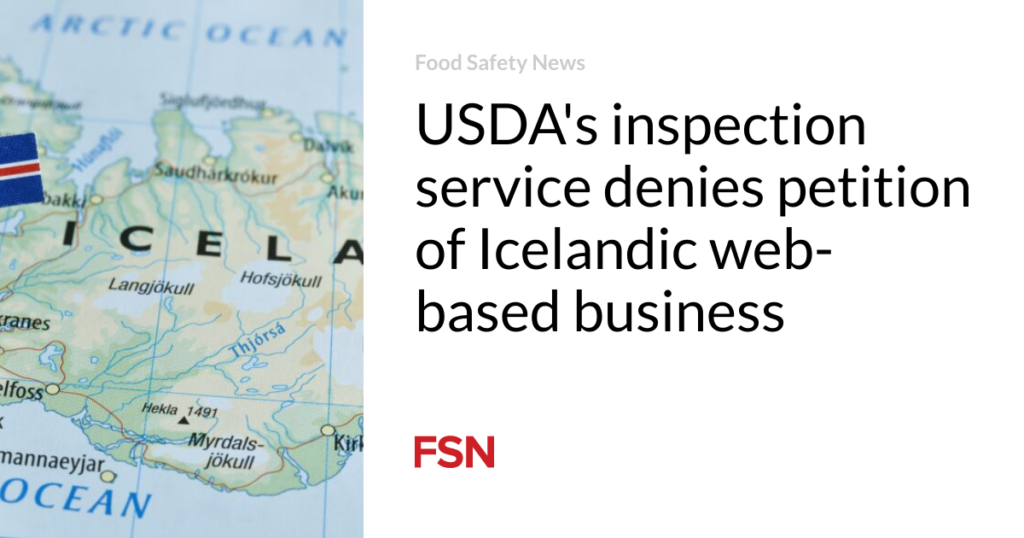USDA's Food Safety and Inspection Service (FSIS) has completed its review of the November 4, 2022 petition from TopIceland.com in Iceland.
The petition asks FSIS to clarify that regulations establishing requirements for importing small quantities of meat products for the importer's consumption also apply to meat products purchased over the Internet. Ta.
ToppIceland.com claimed that the U.S. Food and Drug Administration (FDA) defines products for personal import as not intended for further sale or distribution in U.S. commerce. The product can be transported in hand luggage or sent by courier or international mail.
The petition argued that, like the FDA, FSIS should not differentiate between shipping methods when importing products for personal consumption. FSIS' Office of Policy and Program Development reviewed the rulemaking request.
TopIceland.com is a small e-commerce company located in Grundarfjordur, Iceland. Since 2017, we have been developing our business with the United States as our main market.
In response to Icelandic Business, FSIS wrote: “Your petition cites the U.S. Food and Drug Administration’s (FDA) “definition” of personal importation, stating “because FDA does not distinguish between delivery methods in defining products.” For my own consumption…
“TopIceland therefore petitions that our imports, which fall within the definition of personal imports only, be subject to Regulation 9 CFR 327.16.
“The FDA definitions and links cited in your petition are from statements on FDA's website and are not codified definitions in the Code of Federal Regulations. Additionally, FDA and FSIS have separate The USDA's regulations governing imported products, 9 CFR Part 327, do not define “personal import” or “self-consumption.”
The response explains the regulations as follows: “9 CFR Part 327 contains regulations governing the importation of meat products into the United States, including the FSIS inspection process. Imported meat products must comply with an equivalent food safety regulatory system as determined by the FSIS Administrator. (9 CFR 327.2).
“Among eligible countries, only facilities that have been determined and certified by the person responsible for that country's meat inspection system to meet requirements equivalent to those of the United States are eligible to import products into the United States. , FSIS relies on national government inspection personnel to conduct inspection activities. Each shipment imported into the United States has a foreign inspection certificate issued by an official of the foreign government agency responsible for inspecting and certifying the product. (9 CFR 327.4).
In denying TopIceland's petition, FSIS also refused to provide a two-year “adjustment” period during which it could continue shipping products to the United States.
FSIS explained it this way:
“If a traveler brings meat products into the United States, the traveler must declare the product on a U.S. Customs declaration. Customs and Border Protection agricultural experts will inspect the produce upon entry and comply with entry requirements. determine whether it is satisfied.
“FSIS also inspects products offered for import under 9 CFR 327.16 to determine whether they fall under this regulation and are exempt from the standard import requirements and inspection process contained in 9 CFR part 327. Under this system, the U.S. government inspects imported products to determine if they are in a class eligible for import.
“If products are sent by mail or courier, these products are not accompanied by documentation that certifies that they meet the criteria to qualify for an exemption from import regulations in 9 CFR part 327, and therefore are not eligible for the same opportunity. The current system also promotes food safety by limiting the amount of uninspected meat products allowed into the United States. We have decided to deny your petition.”
(To sign up for a free subscription to Food Safety News, click here. )

